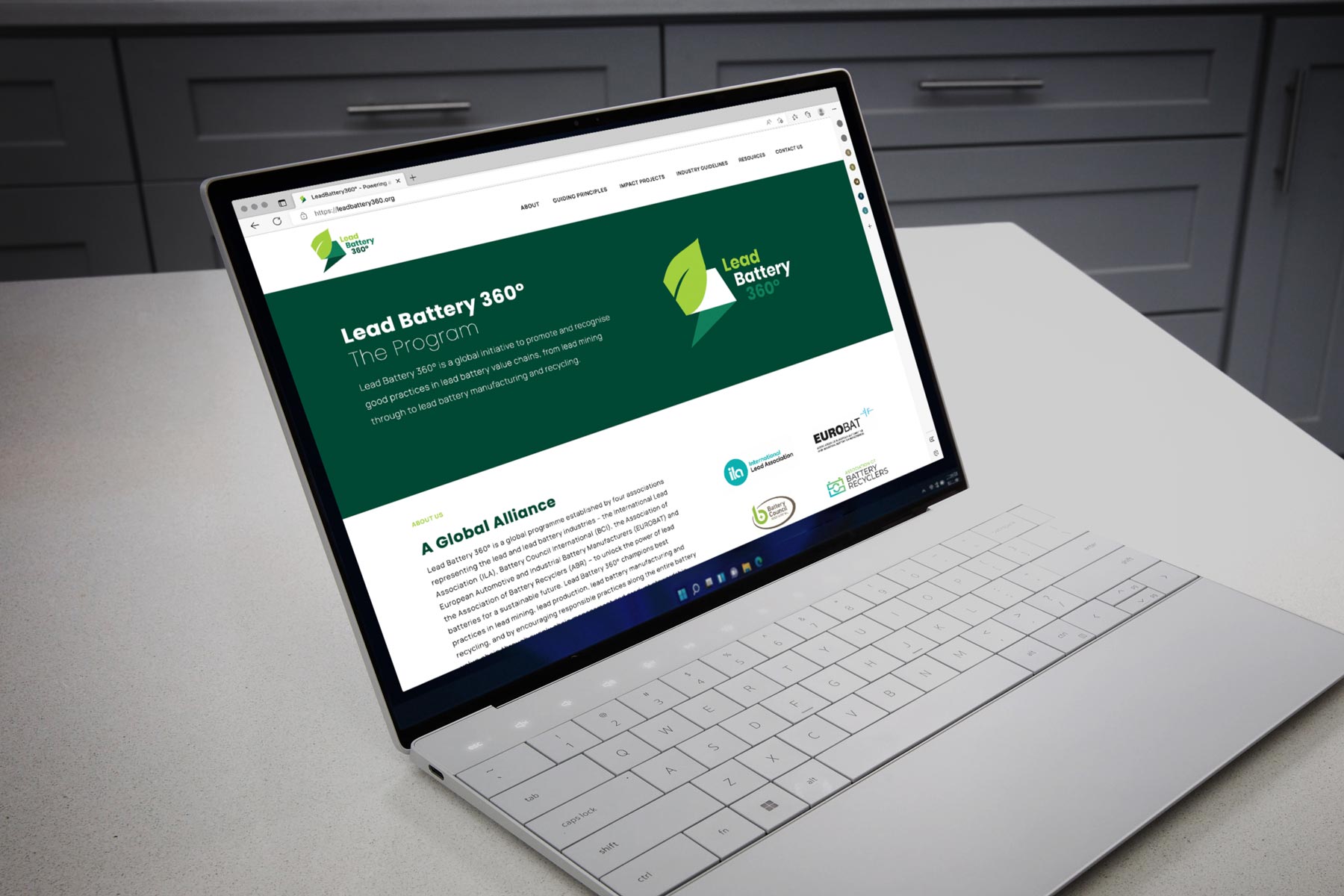Four associations representing the lead and lead battery industries have launched a program designed to help reduce substandard and informal lead battery recycling in low-and-middle-income countries (LMICs).
The program – known as LeadBattery360° – builds on guiding principles agreed among the associations in 2020.
Supported by the International Lead Association (ILA), Battery Council International, EUROBAT, and the Association of Battery Recyclers, the initiative aims to promote and recognize best practice in the responsible management of lead throughout lead battery value chain – from mining through to battery manufacturing and recycling.
To support this program, a new website, www.leadbattery360.org, highlights a range of initiatives supported by the industry to reduce informal recycling in countries ranging from Ghana to Bangladesh and from the Philippines to Costa Rica.
In the United States and in Europe lead batteries operate in a closed loop – where battery raw materials are recycled at end-of-life and used to manufacture new batteries – with up to 99% of spent lead batteries being collected and recycled. However, in some LMICs, improper and unregulated battery recycling of lead batteries can cause serious health risks for employees and nearby communities.
Dr Steve Binks, of ILA, the program director, said: “We all want to see an end to informal and substandard battery recycling and manufacturing where it exists, and this initiative aims to help countries where this is a problem improve through practical support and sharing best practice. Our guiding principles set the bar for the entire lead and lead battery value chain, ensuring that companies who are members of the four associations supporting the program continue to meet the already very high standards in place to protect people and the environment.
“As worldwide demand for rechargeable batteries continues to grow, we are committed to promoting ethically sound battery recycling and manufacturing through our LeadBattery360° initiative.”
The guiding principles established by the associations include commitments to:
- Support responsible battery manufacturing and recycling by placing environmental health
and safety excellence at the heart of our operations. - Promote the sound management of lead exposure and emissions by setting continuous
improvement targets and sharing best practices - Adopt responsible sourcing policies for lead-containing materials, seek to identify risks in the supply chain, and use our influence to promote best practices for EHS performance in suppliers’ operations.
- Minimize the environmental impact of our products by encouraging the development of programs that ensure effective collection, transportation, and environmentally sound recycling of used lead batteries.
- Adopt business practices that consider the communities impacted by our operations, respect
the human and labor rights of our employees, and work against corruption in all its forms. - Proactively engage key stakeholders in an open and transparent manner.
- Partner with key stakeholders and government agencies to share our expertise and promote
environmentally sound recycling of lead batteries in low and medium-income countries.
LeadBattery360° members are part of the technical working group that is currently updating the Basel Technical Guidelines for the Environmentally Sound Recycling of Used Lead Acid Batteries. They also provided the technical input into standard operating procedures for responsible lead battery recycling that are currently being incorporated into regulatory standards in Ghana and evaluated in other countries.

